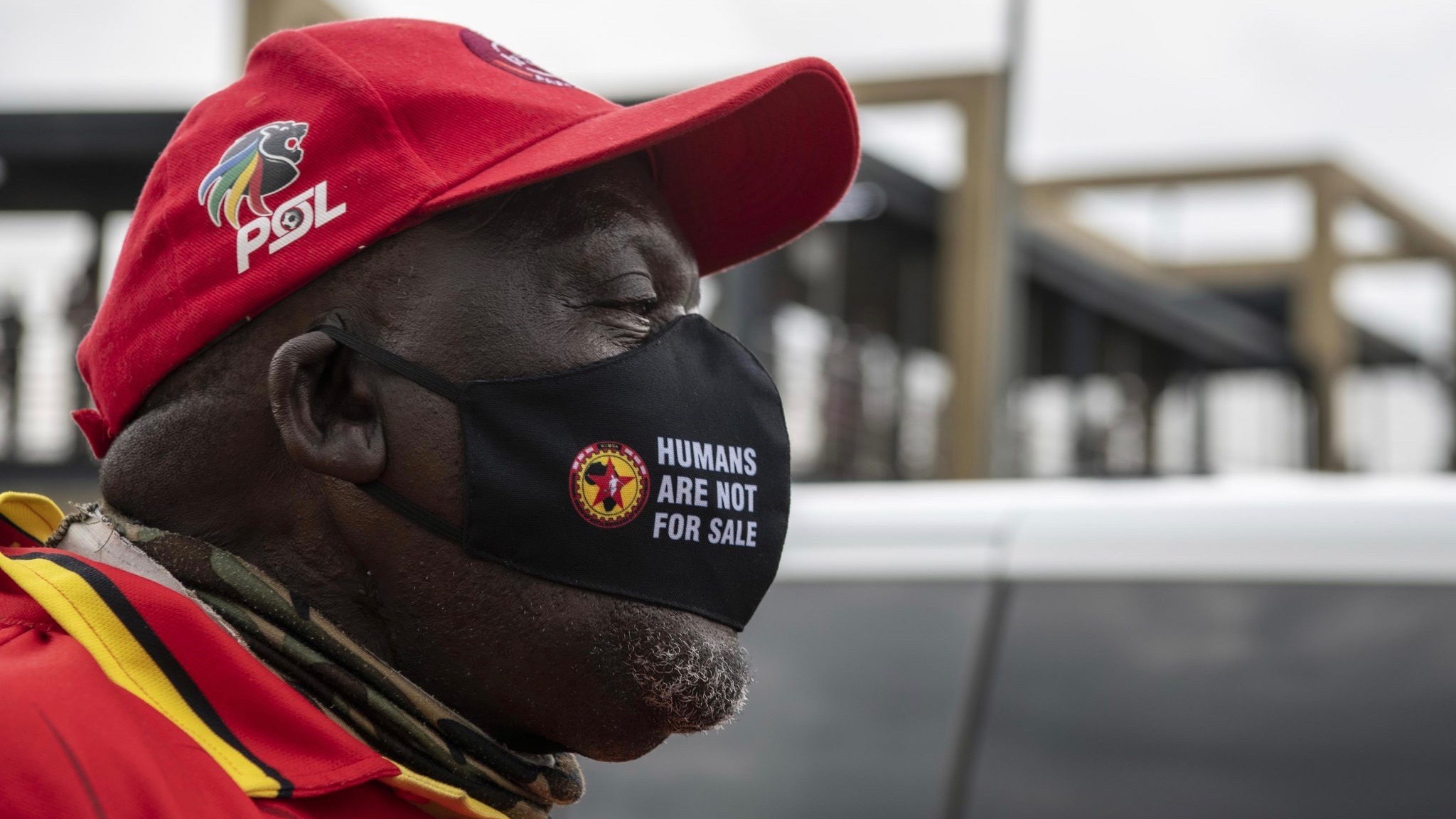“I am angry. We should be fighting against economic exploitation but instead we are fighting for basic things like health and safety,” declared a worker participating in a recent shop steward induction workshop organized by the National Union of Metalworkers of South Africa (Numsa). Pan Africanism Today spoke to Vuyolwethu Toli, Numsa Education Officer at Jack Charles Bezuidenhout (JC Bez) Region, about the ongoing struggles and deficiencies of occupational health and safety practices in South African workplaces during the COVID-19 pandemic.
Pan Africanism Today: What are the most common occupational health problems where you organize?
Vuyolwethu Toli: Many workers experience occupational diseases and workplace related injuries. Some get burnt from working in foundries. Others from operating machines.
Sometimes there are long term implications where you do not immediately see the effect. Amongst long term implications is what is commonly known as noise induced hearing loss. It is dominant in the manufacturing, transportation, mining and construction sectors. In the mining sector alone processes generate excessive noise as a result of activities such as rock drilling, blasting and crushing of ore. Wearing ear muffs might minimize the effect but it does not eradicate it. Other common occupational diseases are found in the metal sector from working with metal carbides (hard metals). In this sector workers suffer from broncho pulmonary disease.
Another recent case for Numsa was ArcelorMittal’s negligence of occupational health and safety. Three workers – Thami Molefe, Shart Mofokeng and Mpho Madonsela – passed away early this year following an explosion that caused a building to collapse. This is a classic example of employers subjecting workers to poor working conditions in pursuit of huge profits. Arcelormittal is Africa’s largest steel producing company and supplies 61% of South Africa’s steel. What is not sold inside the country is exported to Sub Saharan Africa and elsewhere.
PAT: Are there any legal protections against occupational diseases and injuries in the workplace?
VT: Employers care about maximizing profits at the expense of workers’ lives. This is born from South Africa’s notorious system of apartheid – whose class character of institutionalized racial segregation ensured that there was a consistent stream of cheap black labor to industries. Brutal exploitation and oppression manifested through unsafe and unhealthy working conditions accompanied by extremely low wages for black workers. Many workplaces, if not all, still suffer from an apartheid hangover.
Among other labor laws governing workplaces in South Africa is the Occupational Health and Safety Act No.85 of 1993. The main aim behind the promulgation of this Act was to provide for health and safety of persons at work. However, workplaces in the sectors we organize continue to suffer from all sorts of occupational diseases, injuries and deaths.
Workplaces remain largely untransformed on many fronts, including employment equity and occupational health. COVID-19 has further exposed these existing contradictions between workers and bosses, and the healthcare system in general. Many of our comrades are struggling to access high quality hospitals. Even the vaccine that is widely spoken about has been an empty promise inaccessible to the general working class.
PAT: During the pandemic, how have workplaces adapted?
VT: Central to this, once again, is that bosses prioritize profit maximization. Workers are exploited through extended working hours. Employers slash expenses that would create a decent and conducive working environment. This is a class struggle. Furthermore, employers have used COVID-19 as a scapegoat to retrench workers and re-employ a new pool of workers at lower wages and benefits.
Without safety measures in the workplace, workers are exposed to COVID-19. Our lessons have been that employers are always negligent. We have to force them to comply. It is a struggle between labor and capital – a health and safety dimension of a broader class contradiction. We have to struggle and organize for workers to have safe working conditions.
PAT: Considering NUMSA is now organizing in the mining sector, how are mineworkers affected by the pandemic?
VT: As soon as the government announced mining houses were to open, South Africa’s migrant labor system saw workers being bussed to our country’s gold, chrome, and platinum mines in their hundreds.
No physical distance exists when mineworkers go underground. 80 or 100 workers are squashed in a cage to go work deep in the belly of the earth. Working underground for long hours results in loss of eyesight and hearing impairment amongst other health implications. Even more dangerous is that many of these workers suffer from comorbidities like asthma, silicosis or tuberculosis.
PAT: Where do these workers stand in the vaccine program?
VT: The working class produces value and wealth but are not considered in the vaccination program.
Working in large numbers in factories and using public transport, they are congested and exposed to the virus. That is why from the trade union perspective – particularly Numsa which promotes democratic worker leadership – not just in the workplace but in society at large, we call for a free quality vaccine for all. The vaccine must be given to the masses of our people to make sure they are safe. However, we say workers must be prioritized. They are the frontliners who produce the wealth in society.
In one of Karl Marx’s letters to Kuggelman, he said that, “every child knows that if a nation ceases to produce for a week or even two weeks, it will perish”. With COVID-19 the economy was paralyzed because there is no economy without the working class. They are the locomotive that drives and puts things in motion. If all value comes from labor, why can’t you vaccinate workers?





